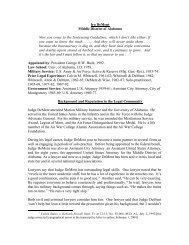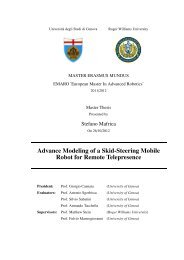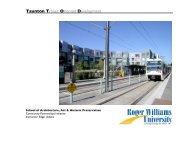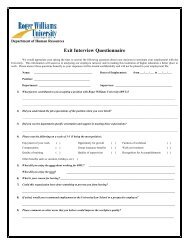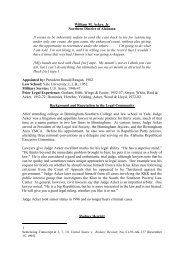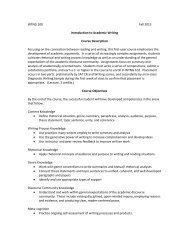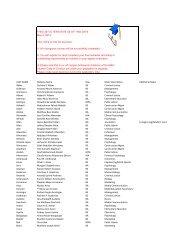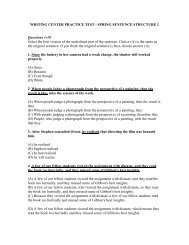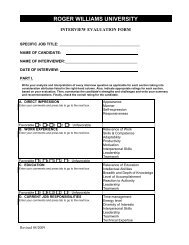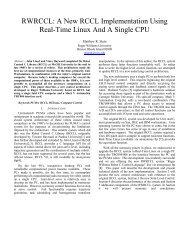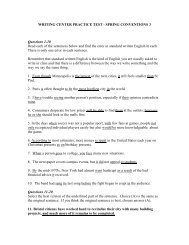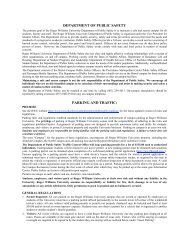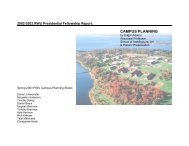SECCM Assessment Plan - Roger Williams University
SECCM Assessment Plan - Roger Williams University
SECCM Assessment Plan - Roger Williams University
You also want an ePaper? Increase the reach of your titles
YUMPU automatically turns print PDFs into web optimized ePapers that Google loves.
Student assessments of course objectives, while numerically acceptable, were lower than in<br />
proceeding years. This was the first year for student assessment of the revised Engineering<br />
Program Educational Objectives so no comparison is possible. In general, the students did feel the<br />
course contributed to the satisfaction of the Program Educational Objectives.<br />
There were no significant course changes that could serve as a possible source of explanation for<br />
the observations noted above.<br />
a. Course Objective Efficacy Matrix<br />
The following table presents survey results indicating the instructor and student assessment of the<br />
satisfaction of the course objectives. See scale below.<br />
Course Objective<br />
Instructor<br />
Evaluation*<br />
Student<br />
Evaluation*<br />
Apply the conservation of mass, conservation of energy, and the second<br />
law of thermodynamics to a closed system.<br />
4.00 3.61<br />
Apply the conservation of mass, conservation of energy, and the second<br />
law of thermodynamics to an open system<br />
4.00 3.61<br />
Apply thermodynamic properties and equations of state for an ideal gas,<br />
steam and refrigerants.<br />
4.00 3.44<br />
Analyze the common ideal power generation power cycles including the<br />
Rankine, Otto, Diesel, Brayton and their respective actual cycles.<br />
4.00 3.67<br />
Analyze the ideal and actual vapor compression refrigeration cycles. 4.00 3.39<br />
Analyze an air-water vapor mixture as it applies to total air conditioning. 3.50 3.28<br />
*Scale: 0 = unsatisfactory; 1 = marginal; 2 = satisfactory; 3 = good; and 4 = excellent.<br />
b. Engineering Program Educational Objectives<br />
The following table presents survey results indicating the instructor and student assessment of<br />
degree to which the course supported the Engineering Program Educational Objectives. See scale<br />
below. This is the first year for the revised program objectives.<br />
*Scale: 0 = unsatisfactory; 1 = marginal; 2 = satisfactory; 3 = good; and 4 = excellent<br />
Engineering Program Educational Objectives<br />
1. Graduates possess an inquisitive mind, demonstrate excellence in technical<br />
knowledge and skills, achieve success as a practicing engineer or graduate<br />
student, and apply the highest ethical standards in all pursuits.<br />
2. Graduates value the concept of, and demonstrate through practice,<br />
activities and actions that contribute to continual intellectual growth.<br />
3. Graduates advance the engineering profession by becoming actively<br />
involved in professional associations and societies, serving in professional<br />
and community volunteer positions, acting as a role model for the future<br />
generation of engineers, and assisting the <strong>SECCM</strong> Engineering Program in<br />
achieving its mission and goals.<br />
Faculty<br />
Evaluation<br />
Student<br />
Evaluatio<br />
n<br />
4.00 3.56<br />
4.00 3.56<br />
3.00 3.28



